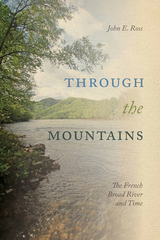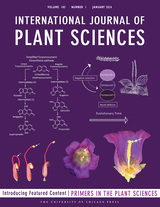4 start with T start with T

Seventy million years ago in what would become North America, a monstrous thirty-five-foot-long Cretaceous crocodile lurked on a marshy riverbank. Springing suddenly, its huge jaws trapped and crushed a juvenile hadrosaur. Today, the remains of that ancient crocodile are being painstakingly reconstructed in Colorado, where naturalist Zach Fitzner continues his life-long fascination with this amazing animal family.
In Tears for Crocodilia: Evolution, Ecology, and the Disappearance of One of the World’s Most Ancient Animals, Fitzner tracks the evolution of crocodilians from prehistoric predators to modern endangered wildlife, using his own experiences with these reptiles as a lens to understanding wildlife conservation and our relationship with the natural world. Traveling the world to interact with crocodiles, from observing alligators in a wildlife refuge in Texas and paddling a canoe in the Everglades searching for crocodiles to trekking the jungles in Nepal to find endangered gharials, the author expresses a wonder in exploring these diverse ecosystems, making a connection between crocodilians and the lands they live in. As the story follows crocodilians, it also illuminates their often complicated relationship with humans, from crocodile cults in ancient Egypt to American alligators living on golf courses. Fitzner also closely examines the dark side of this relationship, including habitat destruction and poaching as well as the mechanistic view of traditional conservation that turns these magnificent animals into agricultural products. Tears for Crocodilia delves deeply into issues of wildlife conservation, ethics, and how we can coexist with other creatures. It is also a tribute to a magnificent group of animals, survivors from the age of dinosaurs.


Two generations have passed since the publication of Wilma Dykeman’s landmark environmental history, The French Broad. In Through the Mountains: The French Broad River and Time, John Ross updates that seminal book with groundbreaking new research. More than the story of a single river, Through the Mountains covers the entire watershed from its headwaters in North Carolina’s Blue Ridge and the Great Smoky Mountains to its mouth in Knoxville, Tennessee.
The French Broad watershed has faced new perils and seen new discoveries since 1955, when The French Broad was published. Geologists have learned that the Great Smoky Mountains are not among the world’s oldest as previously thought; climatologists and archaeologists have traced the dramatic effects of global warming and cooling on the flora, fauna, and human habitation in the watershed; and historians have deepened our understanding of enslaved peoples once thought not to be a part of the watershed’s history. Even further, this book documents how the French Broad and its tributaries were abused by industrialists, and how citizens fought to mitigate the pollution.
Through the Mountains also takes readers to notable historic places: the hidden mound just inside the gate of Biltmore where Native Americans celebrated the solstices; the once-secret radio telescope site above Rosman where NASA eavesdropped on Russian satellites; and the tiny hamlet of Gatlinburg where Phi Beta Phi opened its school for mountain women in 1912.
Wilma Dykeman once asked what the river had meant to the people who lived along it. In the close of Through the Mountains, Ross reframes that question: For 14,000 years the French Broad and its tributaries have nurtured human habitation. What must we start doing now to ensure it will continue to nourish future generations? Answering this question requires a knowledge of the French Broad’s history, an understanding of its contemporary importance, and a concern for the watershed’s sustainable future. Through the Mountains fulfills these three criteria, and, in many ways, presents the larger story of America’s freshwater habitats through the incredible history of the French Broad.

Through literary, rhetorical, and historical analysis of some of the Colorado River’s lesser-known stakeholders, Tributary Voices considers a more comprehensive approach to river management on the eve of the one-hundredth anniversary of the signing of the Colorado River Compact, which governs the allocation of water rights to the seven states in the region. Ranging from the early twentieth century to the present, Tributary Voices examines nature writing, women’s narratives, critiques of dam development, the Latina/o communities’ appeals for river restoration, American Indian authors’ and tribal nations’ claims of water sovereignty, and teachings about environmental stewardship and provident living. This innovative study models an interdisciplinary approach to water governance and reinvigorates our imagination in achieving a more sustainable water ethic.
READERS
Browse our collection.
PUBLISHERS
See BiblioVault's publisher services.
STUDENT SERVICES
Files for college accessibility offices.
UChicago Accessibility Resources
home | accessibility | search | about | contact us
BiblioVault ® 2001 - 2024
The University of Chicago Press









